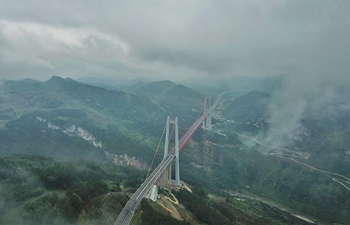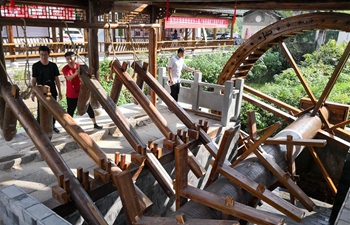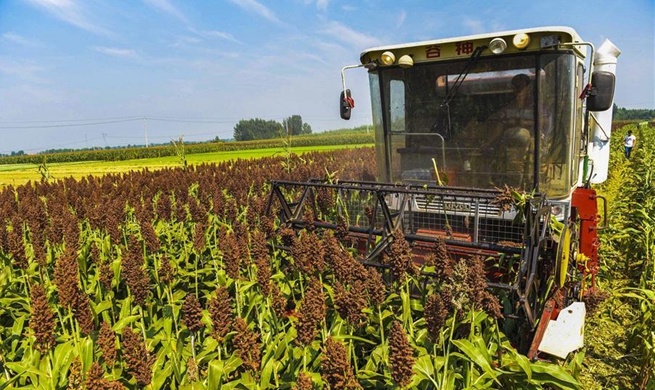WASHINGTON, Aug. 27 (Xinhua) -- Harvard scientists found that rising levels of carbon dioxide from human activity made rice and wheat less nutritious, which could result in 175 million people zinc-deficient and 122 million people protein-deficient by 2050.
A study published on Monday in the journal Nature Climate Change showed that more than 1 billion women and children could lose a large amount of their dietary iron intake, putting them at increased risk of anemia and other diseases.
"Our research makes it clear that decisions we are making every day, how we heat our homes, what we eat, how we move around, what we choose to purchase, are making our food less nutritious and imperiling the health of other populations and future generations," said Sam Myers, lead author of the study and principal research scientist at Harvard Chan School.
According to the study, higher atmospheric levels of CO2 result in less nutritious crop yields, with concentrations of protein, iron, and zinc being 3 percent to 17 percent lower when crops are grown in environments where carbon dioxide concentrations are 550 parts per million (ppm) compared with crops grown under current atmospheric conditions, in which carbon dioxide levels are just above 400 ppm.
The study has shown that by the middle of this century, when atmospheric carbon dioxide concentrations are expected to reach around 550 ppm, 1.9 percent of the global population or roughly 175 million people could become deficient in zinc and that 1.3 percent of the global population or 122 million people could become protein deficient.
Also, 1.4 billion women of childbearing age and children under 5 who are currently at high risk of iron deficiency could have their dietary iron intakes reduced by 4 percent or more.
The researchers also emphasized that billions of people currently living with nutritional deficiencies would likely see their conditions worsen as a result of less nutritious crops.

















